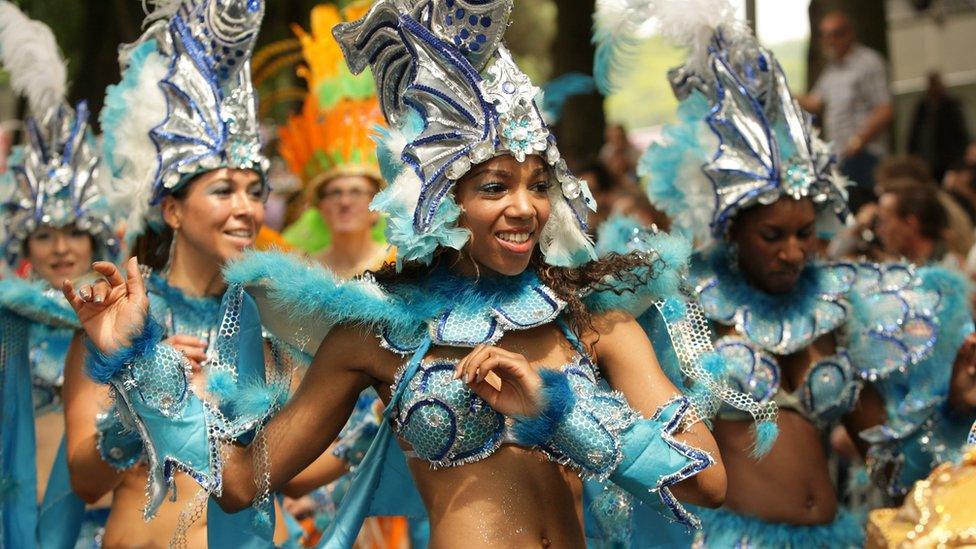Luton 1919 Peace Day riots remembered 100 years on
- Published
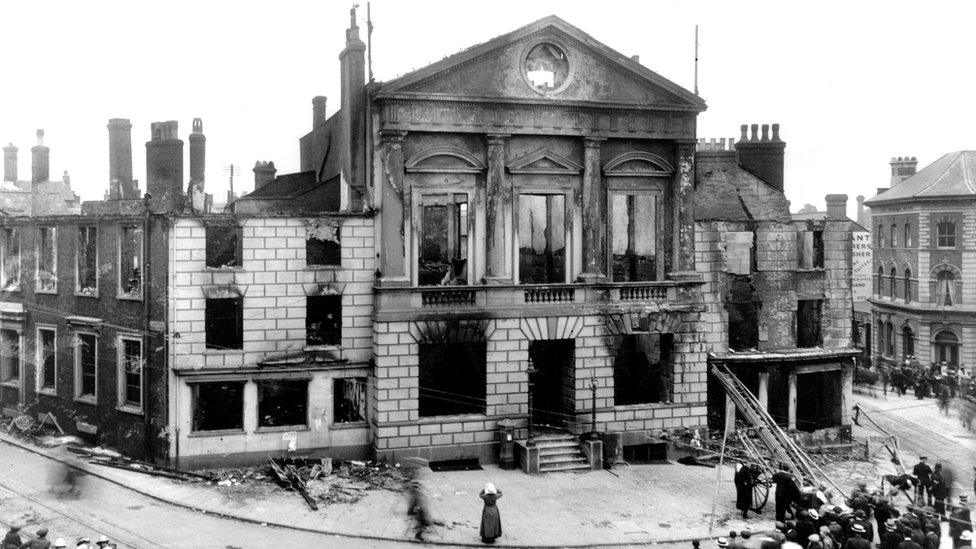
Rioters set the old Luton Town Hall on fire on the night of 19 July 1919 and stopped the fire brigade reaching it
A "massive" free outdoor spectacular is taking place exactly 100 years after a town hall was destroyed by rioters.
On the evening of 19 July, 1919, thousands of people gathered outside Luton Town Hall, to take part in Peace Day - a bank holiday to celebrate the end of World War One.
The exclusion of members of the public from a lavish banquet, caused civil unrest, Luton Borough Council said.
In total 39 people were arrested, the council said.
Tara Finn, a historian at the Foreign and Commonwealth Office, said the Luton riots where the "worst manifestation of the discontent" felt by some veterans to the victory marches and celebrations, external.
She said there were other disturbances in places including Coventry, Wolverhampton and Swindon, but the riots in Luton were "made worse" by local issues, such refusing to allow veterans to hold a drumhead mass in Wardown Park.
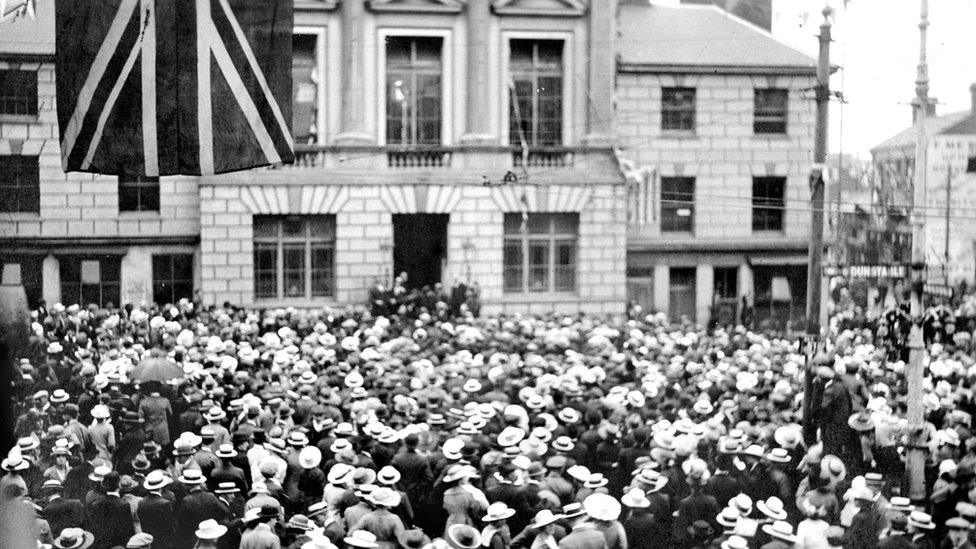
An official civic function took place in the Town Hall for invitees only costing 15 shillings for non councillors
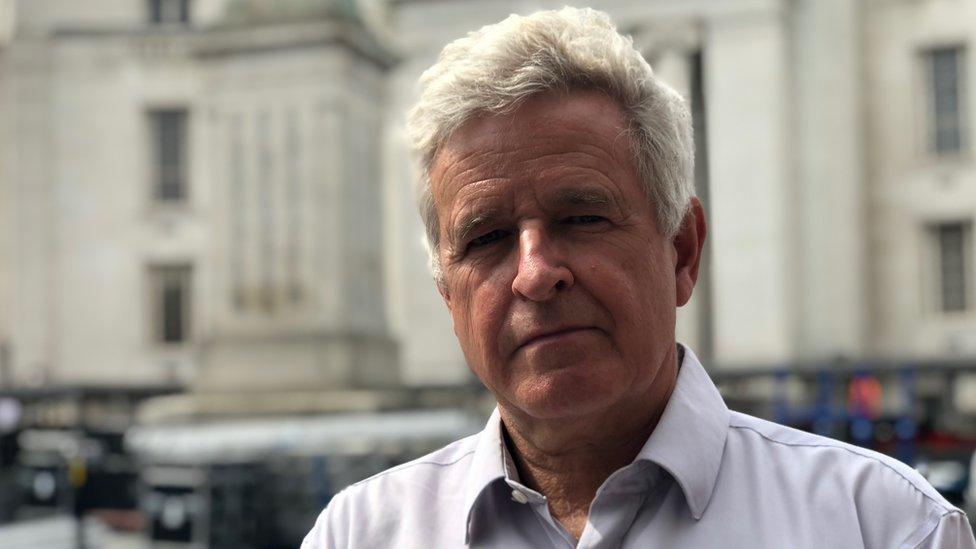
Steve Goodman's grandfather, John Henry Good, was given six weeks hard labour for his part in the riots
Steve Goodman said his grandfather John Henry Good took part in the riots and was sentenced to six weeks hard labour.
"They had come back from the war, they were promised a land fit for heroes and that's not what they found," he said.
"The council ran a celebration dinner for peace day and it was so expensive that none of the ex-soldiers could afford to go.
"A lot of them also didn't have jobs, a lot of the homes weren't in very good condition, there was food rationing.
"All of that I think led to the events of the day."
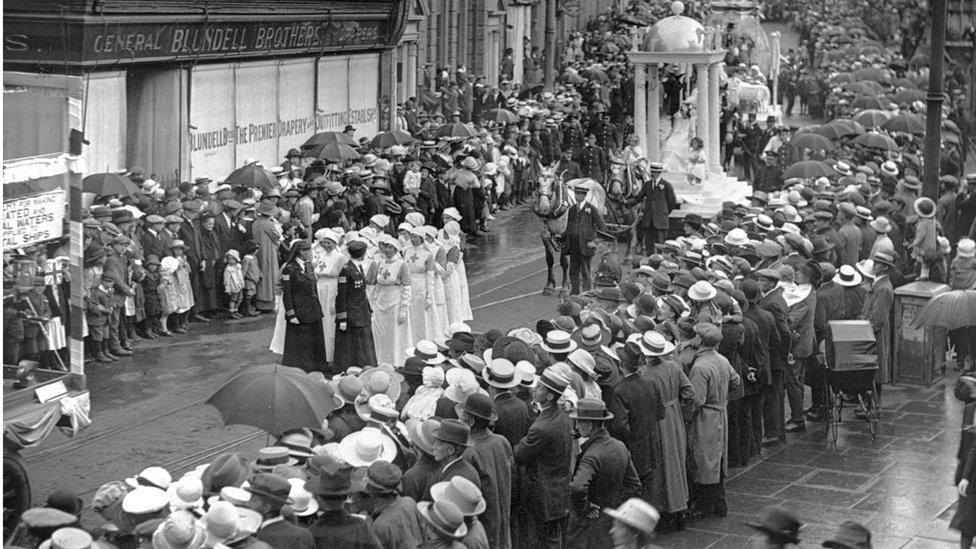
At 14:00 BST on 19 July 1919, a Peace Day parade started in the town to mark the end of World War One
The centenary events, called People Power Passion, are planned throughout the day in St George's Square with a main show featuring dance, music, theatre, and projections starting at 21:00 BST.
A new play called Riot Act is being performed twice in the council chamber at the current town hall.
Labour councillor Rachel Hopkins, portfolio holder responsible for arts at the council, said: "This will be an event like no other held in the town before."
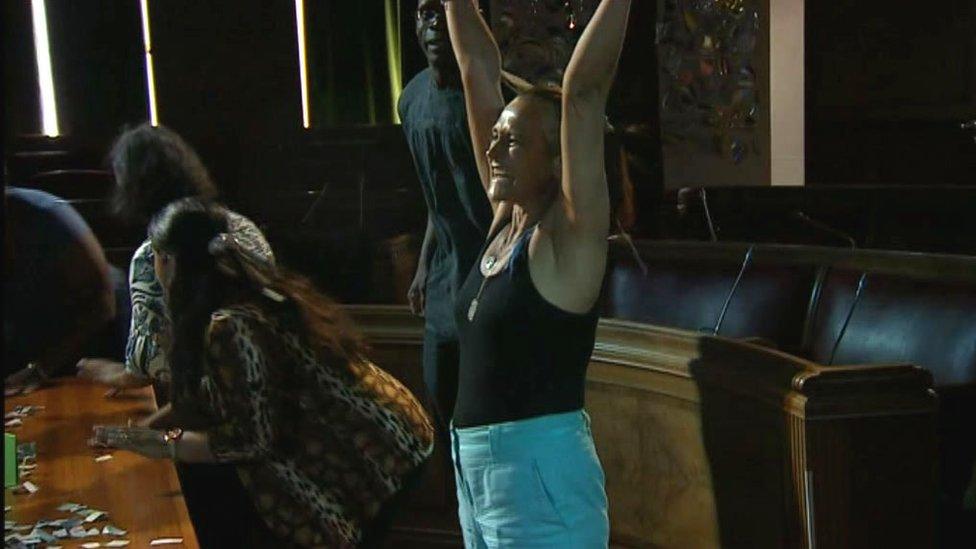
People of Luton are taking part in a performance in the council chamber telling the story of the riots, but with a modern twist
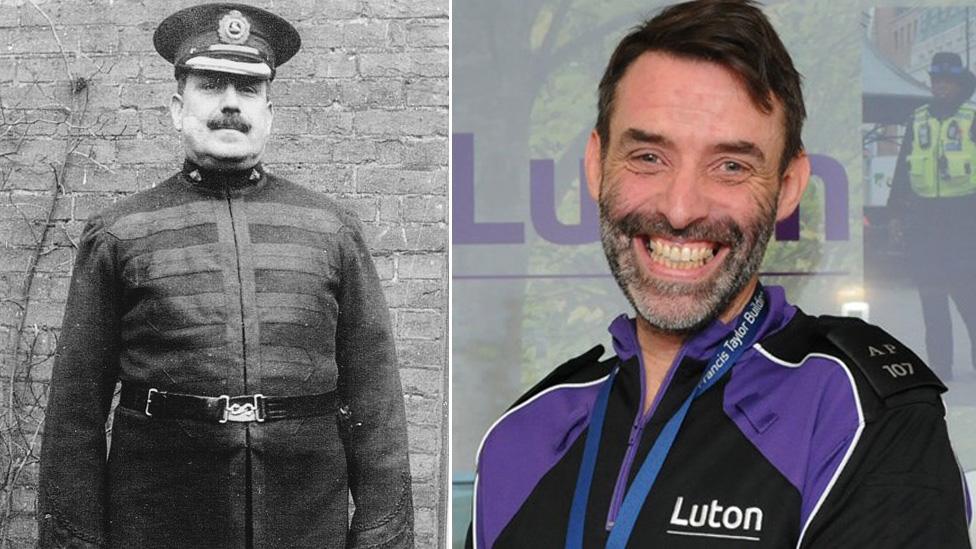
Ch Insp Fred Janes is the great, great, great grandfather of Tony Ireland, who works for Luton Council, and was on duty on the night of the riots
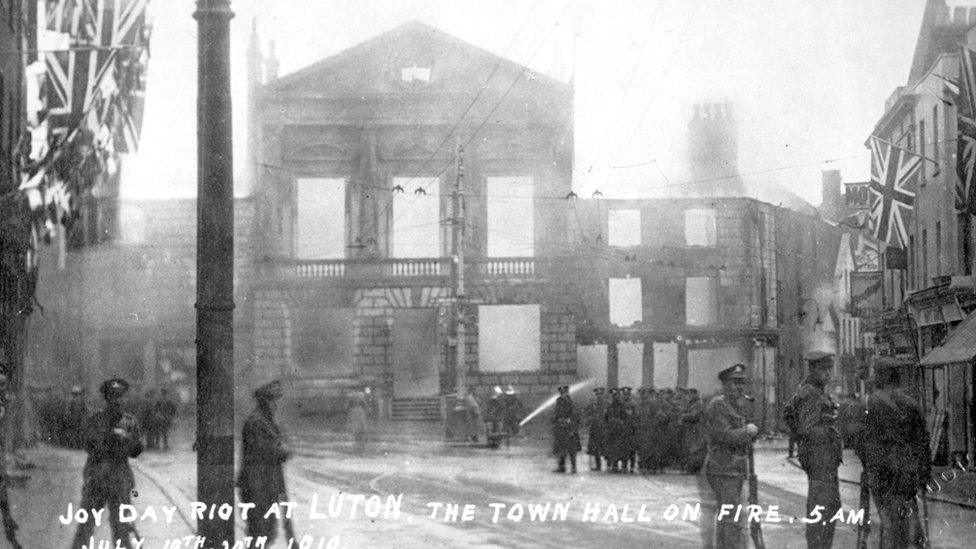
By Sunday, 20 July the fire was out but the Town Hall was in ruins
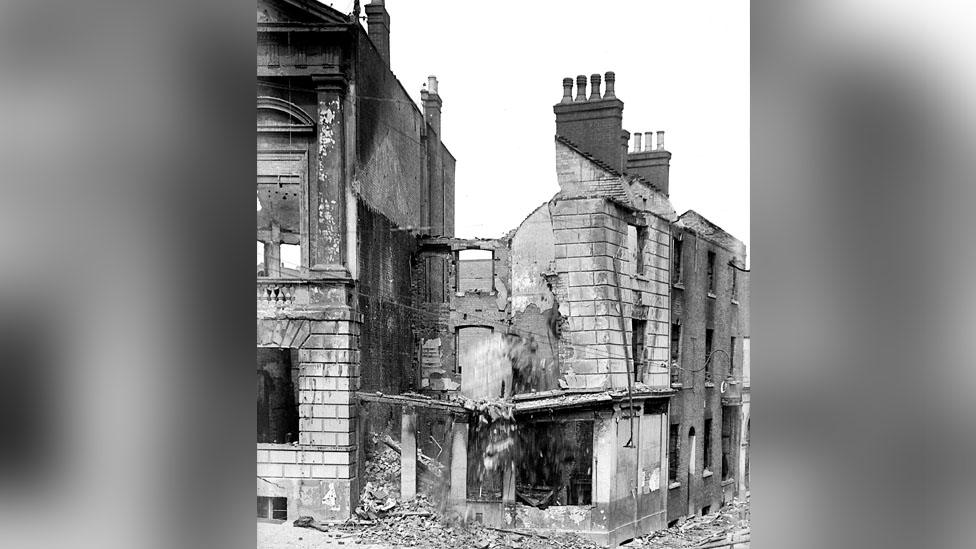
After the fire, the old Town Hall had to be demolished and a new one built
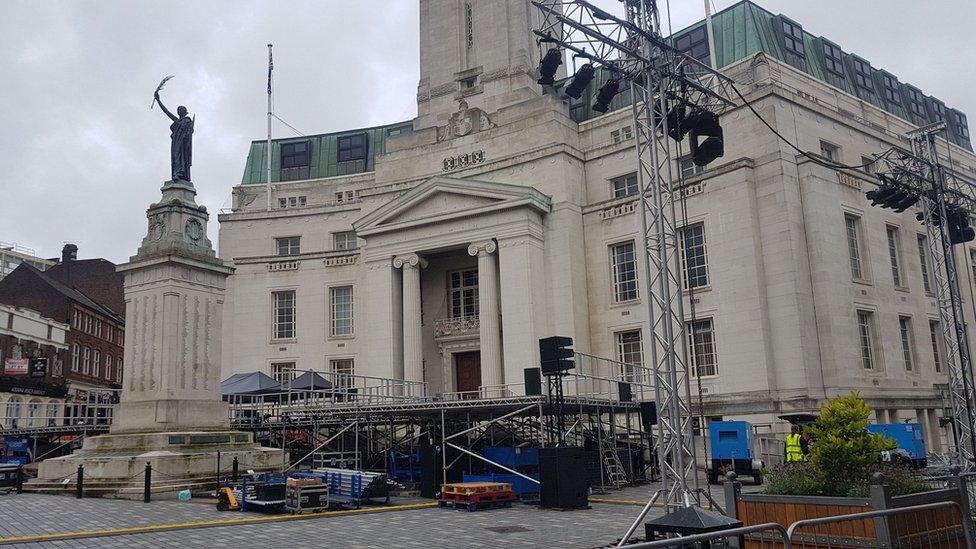
The new Luton Town Hall was built by 1936 and will be the location of a outdoor "spectacular"
- Published5 March 2019
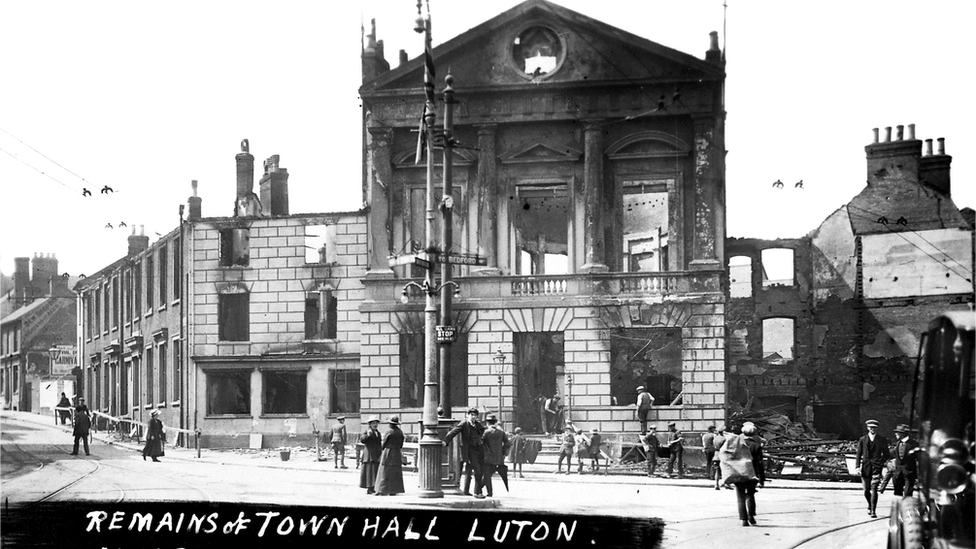
- Published28 February 2017
